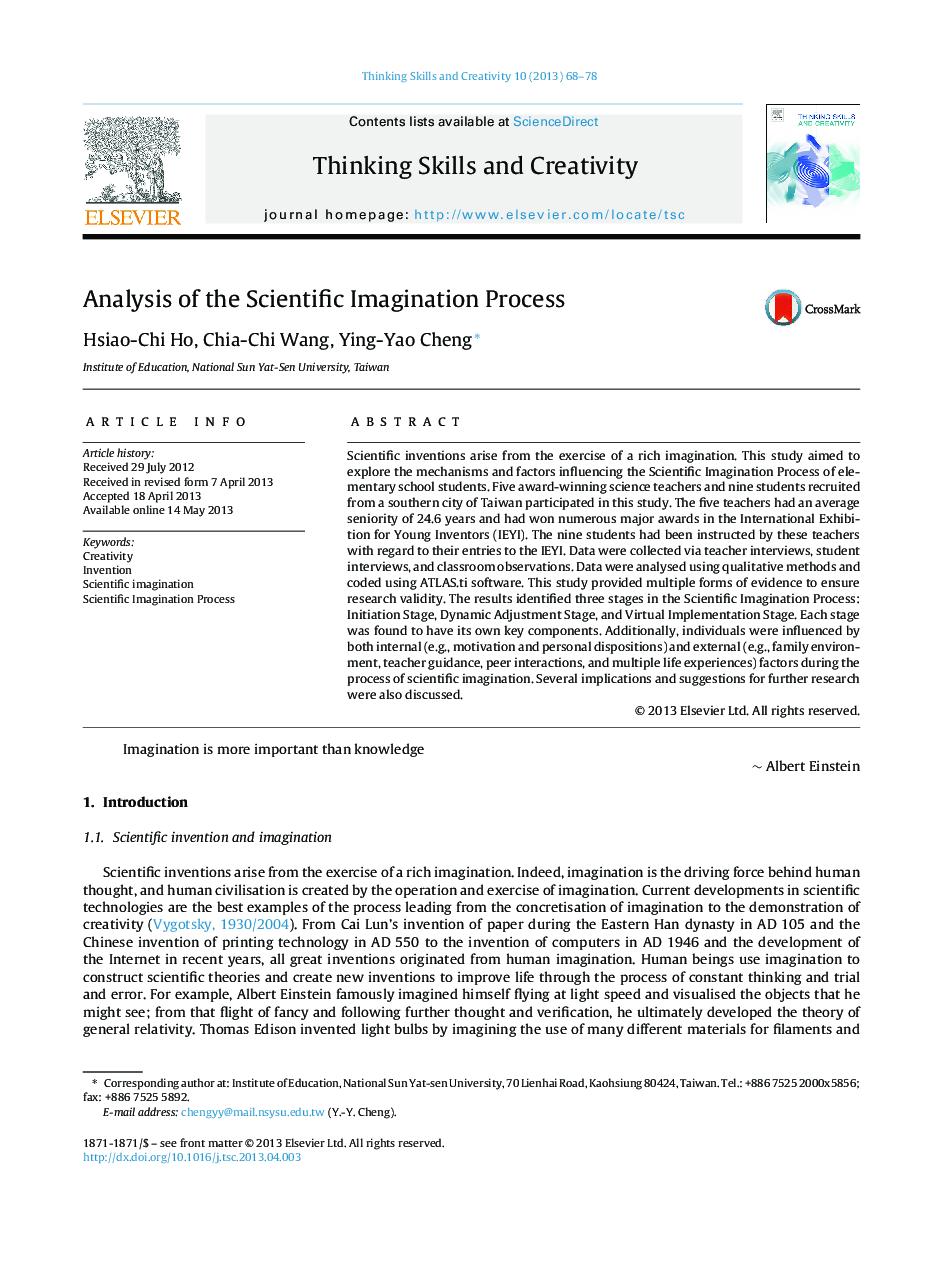| Article ID | Journal | Published Year | Pages | File Type |
|---|---|---|---|---|
| 375633 | Thinking Skills and Creativity | 2013 | 11 Pages |
•The process of scientific imagination is investigated.•Three stages of Scientific Imagination Process were proposed: Initiation Stage, Dynamic Adjustment Stage, and Virtual Implementation Stage.•Four key components of the Scientific Imagination Process were analyzed.•Each stage of Scientific Imagination Process has its own key components: (a) Brainstorming, (b) Association, (c) Transformation and Elaboration, (d) Conceptualisation, Organisation, and Formation.•Teacher guidance is the most crucial factor for fostering scientific imagination.
Scientific inventions arise from the exercise of a rich imagination. This study aimed to explore the mechanisms and factors influencing the Scientific Imagination Process of elementary school students. Five award-winning science teachers and nine students recruited from a southern city of Taiwan participated in this study. The five teachers had an average seniority of 24.6 years and had won numerous major awards in the International Exhibition for Young Inventors (IEYI). The nine students had been instructed by these teachers with regard to their entries to the IEYI. Data were collected via teacher interviews, student interviews, and classroom observations. Data were analysed using qualitative methods and coded using ATLAS.ti software. This study provided multiple forms of evidence to ensure research validity. The results identified three stages in the Scientific Imagination Process: Initiation Stage, Dynamic Adjustment Stage, and Virtual Implementation Stage. Each stage was found to have its own key components. Additionally, individuals were influenced by both internal (e.g., motivation and personal dispositions) and external (e.g., family environment, teacher guidance, peer interactions, and multiple life experiences) factors during the process of scientific imagination. Several implications and suggestions for further research were also discussed.
